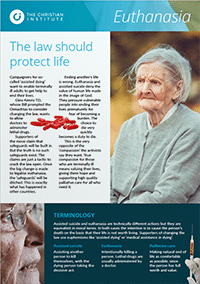My mother said she wanted to die, but now she is happy to be alive, the Bishop of Durham Tom Wright has said.
Bishop Wright said: “I sympathised with her view – her desire to die – but I shuddered at the thought of speeding her on her way.”
Dr Wright, speaking in a House of Lords debate, said his mother had told him several times that she “just wanted to go to sleep and not wake up”.
But she eventually made a full recovery and celebrated her 63rd wedding anniversary and recently greeted her sixth great-grandchild.
Dr Wright then pointed to Holland and the US state of Oregon, where euthanasia and physician assisted suicide, respectively, are legal.
The Bishop said if his mother had been in Holland or Oregon, “someone might have ‘compassionately’ given her a paper to sign and the deed would have been done”.
He added that instead of assisted suicide the “genuinely compassionate course includes the remarkable work of palliative care, in which we in this country are field leaders, particularly through the hospice movement”.
Bishop Wright was speaking during a debate on whether it was necessary to have an independent inquiry into assisted suicide.
A Government Minister said later in the debate that there is “little prospect” of having an inquiry before this year’s General Election.
Another Peer who has previously spoken out against assisted suicide, Baroness Butler-Sloss, spoke strongly in the debate.
She said her main concern was that the elderly and vulnerable who already feel that they are “a drag on their family and friends” may feel impelled to agree to die.
She added: “I am also concerned about the tip of the iceberg. Once legislation is in place, it can that much more easily be extended.”
Bishop Wright said that Parliament’s job was not to “bend to every media-manipulated public whim, but to take the larger and longer view”.
The media has been criticised recently for supportive coverage of issues surrounding assisted suicide.
The BBC was accused by MPs in an Early Day Motion earlier this month of showing “persistent bias” in favour of euthanasia.
The criticism followed two programmes broadcast by the BBC on the same night which supported assisted suicide.
In December a poll reported by The Times newspaper which said MPs were in favour of weakening assisted suicide laws was attacked as unrepresentative.
The poll, reported by The Times on its front page, was commissioned by Dignity in Dying, a pro-euthanasia organisation, and was revealed to have been based on old data.

